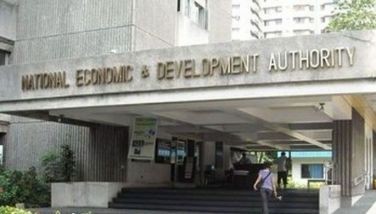Solution to Phl energy woes? More power plants – DOE
(Conclusion)
MANILA, Philippines - How do we move forward?
The Department of Energy (DOE) has issued several circulars to help avoid a repeat of the confusion and outrage sparked by the aborted rate hike early this year.
Energy Secretary Carlos Jericho Petilla said it is better to come up with solutions to the problem than wallow in a blame game.
A Jan. 23 hearing at the Senate on the power rate hike dispute, for instance, erupted into a frenzy of accusations and counter accusations among representatives of power companies and energy officials.
The controversy stemmed from the record high increase in the generation charge of the Manila Electric Co. (Meralco) to P9.10 per kilowatt-hour in December 2013 and P10.23 per kwh in January 2014.
The Supreme Court has issued a temporary restraining order (TRO) on Meralco’s December 2013 generation charge as it deliberates on a petition from militant and consumer groups for the permanent junking of the distributor’s rate hike bid.
In the Jan. 23 Senate hearing, power generators and Meralco said the government was at fault for not running the 650-megawatt Malaya Thermal Power Plant in Rizal. But the government said the rates would not have skyrocketed had the power generators not withheld their capacities.
The government also faulted Meralco for submitting bid of as much as P62 per kwh at the Wholesale Electricity Spot Market (WESM), the country’s trading floor for electricity.
In one of its circulars, the DOE amended the rules governing the WESM to allow power plants with “fast start capability†to run only when needed.
The circular has relaxed provisions of the WESM manual on registration, suspension, de-registration criteria and procedures on generation units so that power plants with fast start capability would no longer be required to run based on their registered minimum load but would be allowed to continue to submit offers in the market.
And because they have fast start capability, they can easily supply power on demand.
The circular is meant to enhance the operational efficiencies of oil-fired power plants by not requiring them to run continuously for 24 hours, according to the DOE.
Petilla said that with this circular, the capacity gap in the WESM would be reduced and would allow power generators to avoid penalties when they run on minimum power supply – provided they can readily supply power if the need arises.
“In the interest of ensuring adequacy and reliability of the power supply, the DOE shall continue to assess the performance of the generation units and if warranted, will use the necessary policies and effect changes to the WESM Rules, motu propio, as necessary,†Petilla said in Circular 2014-02-0004.
Under the new circular, generating units with fast start capability and duly certified by the System Operator or the National Grid Corp. of the Philippines (NGCP) would no longer be required to run based on their minimum stable load.
The DOE, through the circular, also directed the NGCP to determine and submit a certified list of all the generation facilities with fast start capability.
In another circular, the DOE also designated the Malaya plant as a Must-Run Unit (MRU) in the WESM.
Under WESM rules, an MRU is a generating unit identified and instructed by NGCP to provide the needed power supply on a real-time basis or on a particular schedule deemed necessary to ensure the reliability and security of power supply in the grid, especially during times of supply shortfall, the DOE said.
Based on the circular, Malaya will also be exempt from the Must-Offer Rule (MOR) of the WESM. The MOR requires all generation companies registered in the WESM to declare and offer their respective maximum generating capacities in the spot market to prevent capacity withholding by the power plants, the DOE also said.
The DOE, in a third circular, moved to allow market intervention in the WESM.
In DOE’s Circular 2014-01-0001, WESM operator Philippine Electricity Market Corp. (PEMC) has the option to intervene in the market by setting an administered price, based on the average price in the market in the last 30 days prior to the day of intervention.
It said that PEMC may intervene when there is a supply emergency or “where electricity supply capacity shortfall is measured at four percent or below the total demand.â€
The PEMC, the DOE and the ERC, as a tripartite committee, also issued a joint resolution last Dec. 27 lowering the WESM market offer price cap to P32 per kwh from P62 per kwh.
The price cap is the maximum bid that participants in the WESM can offer to purchase electricity. Created in 2006, the tripartite committee’s task is to monitor price volatilities and set price mitigation measures.
The generators, not surprisingly, do not want the lower market cap and are still waiting for a more permanent market cap.
Through the Philippine Independent Power Producers Association or PIPPA, the generators also said there is no need to amend the Electric Power Industry Reform Act (EPIRA).
Instead, PIPPA said the government should just implement changes in market rules.
For one, the group said the market must allow power plants that do not want to offer any capacity to be called on as a last resort without setting the market price. Whether or not these measures will work remains to be seen.
In the meantime, electricity consumers continue to keep a close watch on their monthly electricity bills hoping for a reprieve from dreaded prices spikes.
- Latest
- Trending






























